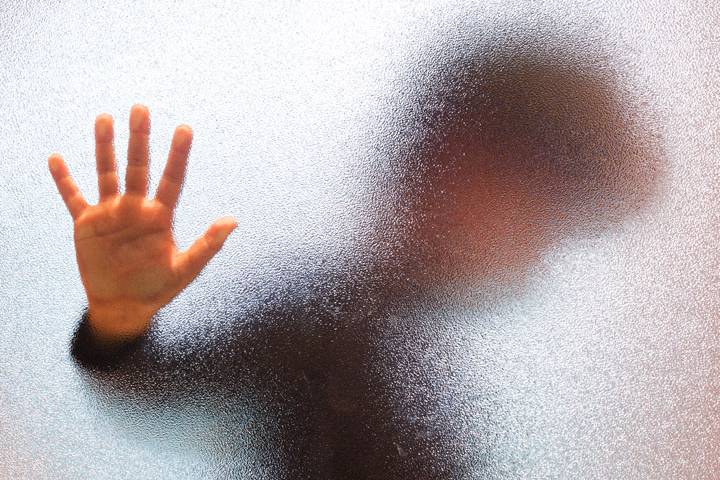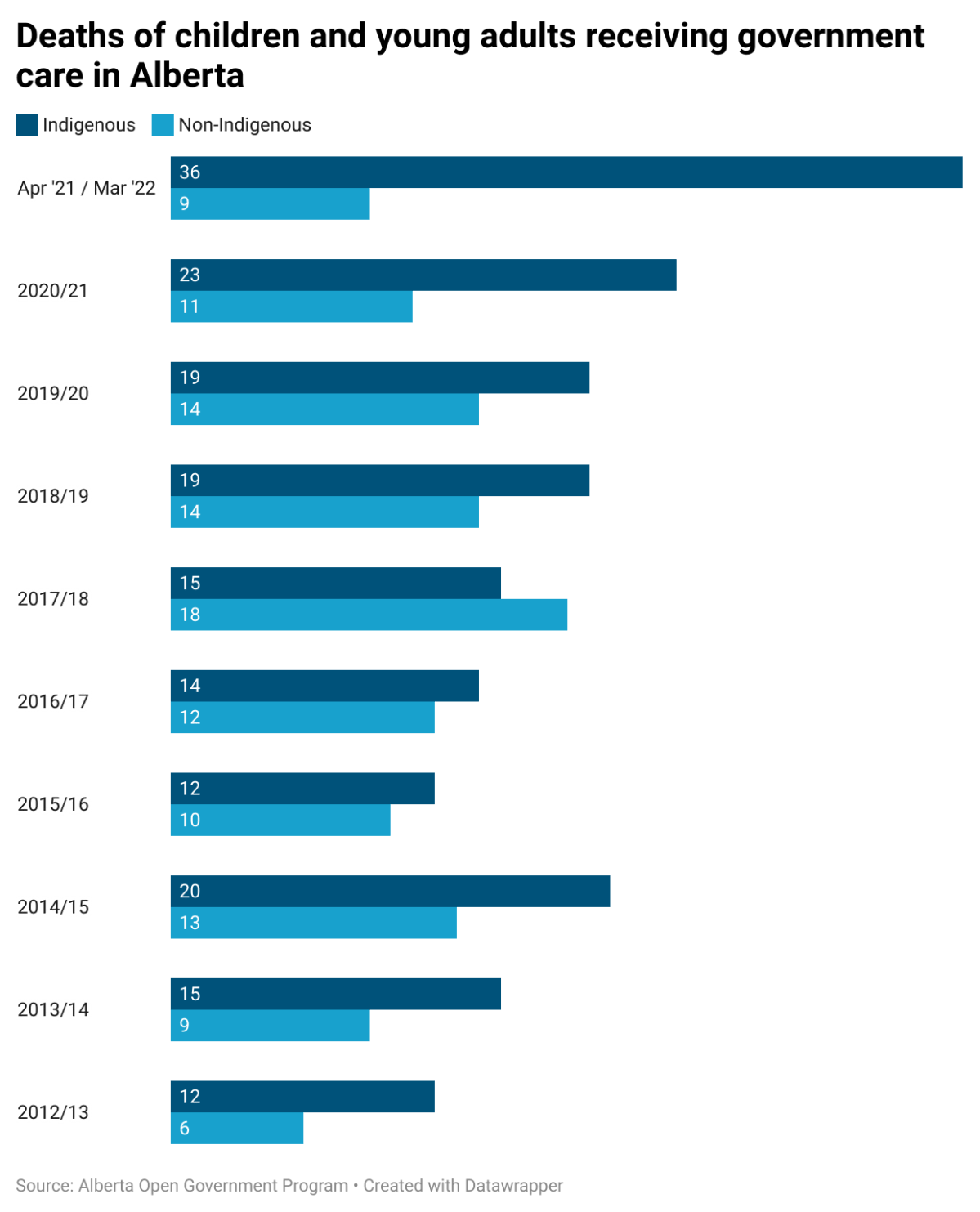Indigenous leaders in Alberta are condemning the over-representation of Indigenous deaths in the child welfare system.

A total of 45 young people died while receiving child intervention services so far in 2021-2022, making it the deadliest year on the record.
Of those, 36 were Indigenous, with the majority of cases still being investigated by the Office of the Chief Medical Examiner (OCME).
Four cases were accidental, one was a suicide and one was deemed “undetermined.” Four deaths were not investigated by the OCME.
The numbers already represent a sharp increase compared to past years.
Linda ManyGuns, Mount Royal University’s associate vice-president of Indigenization and decolonization, was not surprised when she learned about the statistic.
A Blackfoot woman born in the Tsuut’ina Nation, ManyGuns is an elder for the Buffalo Women’s Society and part of the Beaver Bundle Society. She spent 11 years at the University of Lethbridge empowering Indigenous students in their education and updating the school’s 45-year-old curriculum, highlighting the importance of Indigenous success.
“There’s really serious systemic discrimination that’s going on in all these systems, especially when it comes to Indigenous children or families that need help,” ManyGuns said.
“If we don’t change the way Canadian society is operating, I’m afraid our social systems are going to collapse, and I don’t think Canada can afford to continue on with this racial discrimination.”
- McLean accuses Calgary third-party advertiser of ‘whipping votes’ in favour of rezoning bylaw
- Canadian curler Chelsea Carey says don’t compare me to Jennifer Jones
- Firefighters battle blaze at vacant house in northwest Calgary
- 7 sent to hospital after carbon monoxide poisoning incident in northwest Calgary
The destruction of family units is a big factor in the high number of deaths, according to ManyGuns. Advocates say more First Nations families are being separated now than during the years of residential schools.
“I worked in prisons for quite a while. A lot of young ladies that I was meeting were all coming through the system as apprehended children. They usually run away from these homes that have no cultural context to them, and they get out… They end up on the streets.
“Quit destroying families instead of helping families stay together. The destruction of family units and the emotional damage that happens… it goes on every day in every hospital for Indigenous women,” ManyGuns said.

These issues are not new, however. Indigenous, First Nations and Métis people in Alberta have been raising concerns about government child welfare for years.
“The government does not make any better parent than the parents that they were taken from,” said Cheryl Whiskeyjack, executive director of the Bent Arrow Traditional Healing Society in Edmonton.
Whiskeyjack has 27 years of experience helping Indigenous children find kinship care, referring to care of children by relatives or other family members in their communities.
“Our families are our measured through Western eyes… What success looks like in Western eyes is what Indigenous families are measured up against, which is another disconnect in the system.”
But Whiskeyjack said the child welfare is complex and the statistic shouldn’t be viewed under one perspective. She noted that the COVID-19 pandemic and the opioid crisis have roles to play as well. Some children may have needed special medical attention.
“There’s just so many things and the number, alone, is not enough to tell the whole story,” she said.
Children’s Services Minister Rebecca Schulz said the ministry is committed to bringing down the number of Indigenous children in government care. She said the ministry is working on a detailed report to better understand the situation so changes can be made.
It is unclear when the report will be published, however.
“That work is obviously going to take work with Indigenous partners and First Nations across the province… We’re working with Indigenous governing bodies on how to transition responsibility of child intervention from the provincial government to First Nations.
“We know that it’s in the best interest of children and families to keep kids connected with their culture and their communities,” Schulz said during a news conference on Wednesday.

The NDP said the UCP government cannot be trusted with the wellbeing of youth and children in the province.
“We know from history that Indigenous people are over-represented in a number of difficult areas in our society and that a large cause of that are structural issues and systemic issues,” Richard Feehan, NDP Critic for Indigenous Relations, said during a separate news conference on Wednesday afternoon.





Comments